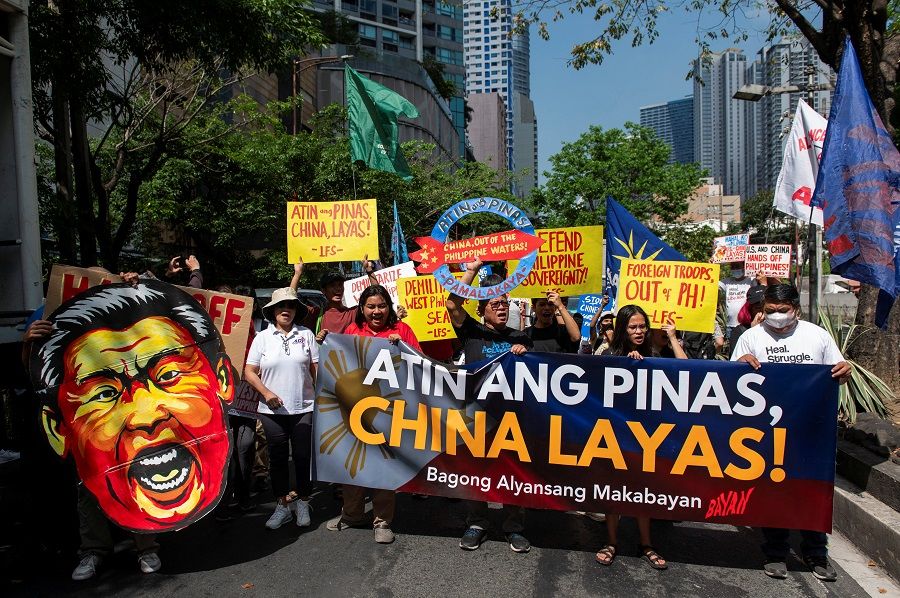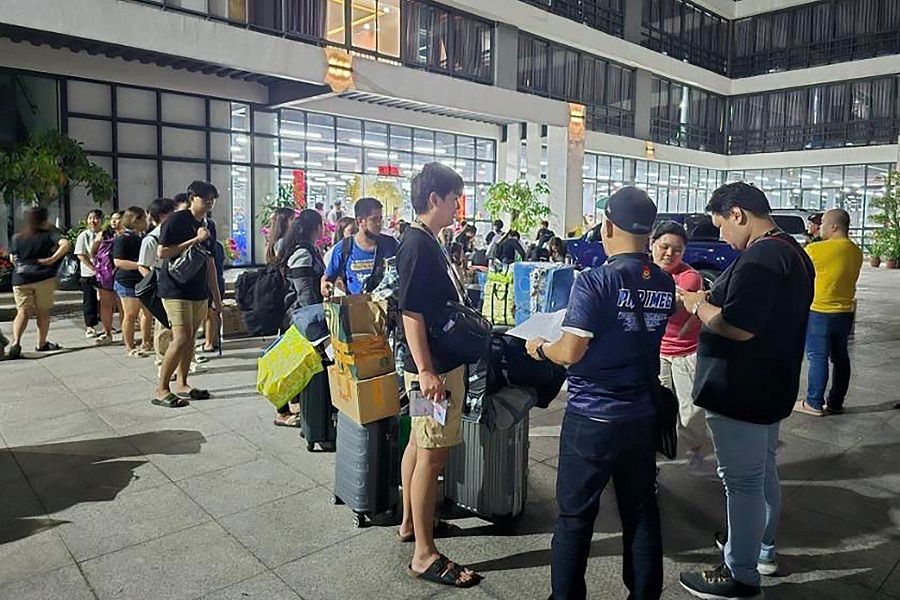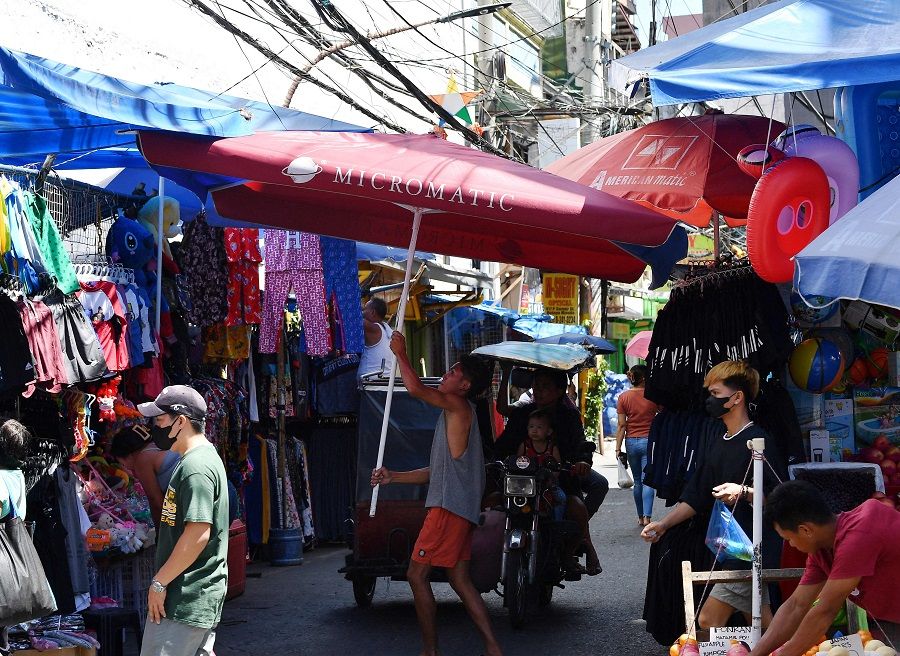The China-Philippines united front on online gambling

Much has been said in the Philippines about China being the instigator of the controversial online gambling industry known as Philippine Offshore Gaming Operators (POGOs), or entities that “offer and participate in offshore gaming services by providing games to players, taking bets, and paying the winning players”.
China opposes the industry
With several Chinese nationals working in POGOs, some say that this is part of China’s alleged grey zone and espionage infiltration (trojan horse) strategy into the Philippines. Quite the contrary, all levels of the Chinese bureaucracy — from its embassy in the Philippines to the foreign ministry to President Xi Jinping — have repeatedly told the then China-friendly Rodrigo Duterte government to shut down the industry. Ironically, Duterte, unlike Cambodia who followed China’s call to close down online gambling hubs, defied China.
China opposes the industry as gambling is illegal in China, has deleterious effects on social and economic order, and harms China’s image.
During the Covid-19 pandemic, some POGOs had left and had been shut down, reducing the number of POGO licensees from 295 in 2019 to just 75 in 2023. As others have remained, China continues to make similar pleas to the current Ferdinand Marcos Jr administration. China opposes the industry as gambling is illegal in China, has deleterious effects on social and economic order, and harms China’s image.
POGOs, which are situated across industrial centres in the Philippines whose number of Chinese employees peaked at 400,000, are stacked against Philippine public opinion and are vehemently opposed even by the ethnic Chinese community.
Ball in Philippines’ court
The mainstream view in the Philippines of online gambling activities being state-sanctioned only goes to show how China is still perceived as a monolithic actor who pulls all the strings in all facets of political and economic life notwithstanding the fact that they had cracked down on their own private sector for monopolistic excesses. This securitised Philippine impression, despite POGOs not being registered in China, is an implication of POGO incidents coinciding with rising tensions in the South China Sea.

With POGOs initiated by private Chinese actors whose end goal is profit-making, the ball is clearly in the Philippine government��’s court on whether POGOs should be banned. Employees in POGOs are usually the non-achievers in Chinese society who find POGOs’ job opportunities tempting due to its low-entry job requirement of Chinese proficiency which is the language medium needed to communicate with Chinese bettors.
... while not all POGOs are guilty of wrongdoings, some illegal and even legal ones, are being used as fronts for malign activities by criminal syndicates.
Since the time of then President Duterte when POGOs boomed, senior Philippine government officials and legislators have on many occasions called for the shutdown of POGOs due to the whole gamut of criminalities involving the same.
On the watch of President Marcos Jr, executive departments such as the Department of Finance (DOF) and the National Economic and Development Authority (NEDA) have expressed grave displeasure with the industry. Early this year, both houses of the Philippine Congress reiterated the urgency to ban the industry in the wake of a renewed spike in POGO-related crimes which reached 4,000 cases in the first half of 2023 alone.
As a form of gambling, the only issue with POGOs is supposed to be moral and ethical considerations. However, while not all POGOs are guilty of wrongdoings, some illegal and even legal ones, are being used as fronts for malign activities by criminal syndicates.
Exacerbated by Philippine situation
There are arguably three types of POGO-related crimes.
First, POGOs commit crimes against their own workers or would-be workers by way of deceptive recruitment tactics such as false promises of high pay and benefits which lead to illegal recruitment, human trafficking, kidnap-for-ransom, homicide, illegal detention, swindling, torture, and prostitution.
... driven by the notion that Philippine institutions are weak and Philippine authorities are corruptible, POGOs bribe their way through and commit tax evasion.

Second, POGOs perpetrate crimes against other people or the public at large by means of online scams, frauds, and money laundering. It is said that because of the economic slowdown in China, some POGOs have shifted their scam operations to target not just mainland Chinese but people all over the world as many Chinese do not have as much surplus capital as before. Notably, these POGOs are emboldened to perpetuate their nefarious activities by illegally possessing firearms, courtesy of Filipino accomplices.
Third, driven by the notion that Philippine institutions are weak and Philippine authorities are corruptible, POGOs bribe their way through and commit tax evasion. Various government agencies have already been embroiled in malfeasance. POGOs have had access to authentic Philippine government-issued public documents like birth certificates, passports, postal IDs and tax identification cards. As a consequence, illegal aliens could unlawfully acquire properties, exploit Philippine natural resources, and even vote in Philippine elections.
The Bureau of Immigration (BI) has been implicated in a scandal for allowing alleged POGO workers, and Chinese fugitives, to easily enter the Philippines for a “service fee” without proper documents. There are also reports that some government and airport security personnel have been moonlighting as security escorts for POGO personnel.
Because of these, POGOs present social, economic, and reputational risks for the Philippines, not to mention their employees’ unruly behaviours in the communities where they reside. A study by the DOF shows that an increase in crime rates substantially offsets tourist influx.
Be that as it may, there are several reasons why POGOs continue to exist despite numerous Senate and Congressional hearings and resolutions. There is the argument of economic gains where gaming revenues could provide public goods and contribute to the real estate market, retail industry and local job creation, which is said to employ about 68,000 Filipinos as of last year. POGOs have contributed US$93 million in taxes (2023) and as much as US$1.8 billion to the Philippine economy (2019).
Another possible factor is regulatory or elite capture wherein POGOs likely have latent lobbying power which enables them to shift the discourse from outright ban to stronger regulation.
Cooperation between the Philippines and China necessary
Against this backdrop, Chinese and Philippine authorities, amidst tensions in the South China Sea, have found an opportunity to deepen non-traditional security cooperation by cracking down on POGO-related crimes through information-sharing.
Philippine and Chinese authorities have made joint efforts in the capture, repatriation and deportation of POGO suspects, and the rescuing of POGO victims. Yet, this cooperation can be further institutionalised by having an MOU on cross-border gambling just as China has done with Cambodia and Vietnam.
This indicates that the Philippine government should not only go after POGOs, but also after enablers in government and the public who are complicit in the criminal activities of POGOs.

Given how POGOs operate in an ecosystem of illicit activities, there needs to be greater inter-agency collaboration or a national task force, which should include local government units (LGUs), so that Philippine government departments can check each other’s efforts and ensure seamless policy coordination.
Last year, despite rebranding attempts of POGOs to internet gaming licenses (IGLs) which mandates greater due diligence and periodic compliance procedures, including site inspections, there was still an incident of a legal POGO being implicated in several crimes. This indicates that the Philippine government should not only go after POGOs, but also after enablers in government and the public who are complicit in the criminal activities of POGOs.
At the local level, various LGUs have already set the precedent of taking matters into their own hands by proscribing the operation of POGOs within their areas of responsibility. If not stopped or strongly regulated, the long-term consequences over short-term gains of the POGO model of a web of unlawful activities might be replicated or exploited by other syndicates — or actors — who harbour malicious intent and can compromise the Philippines’ entire political system and national security.
Finally, for more distinctive policy measures to be taken, more data are needed in terms of crimes that arise from both legal and illegal POGOs, and the interplay between the two.
